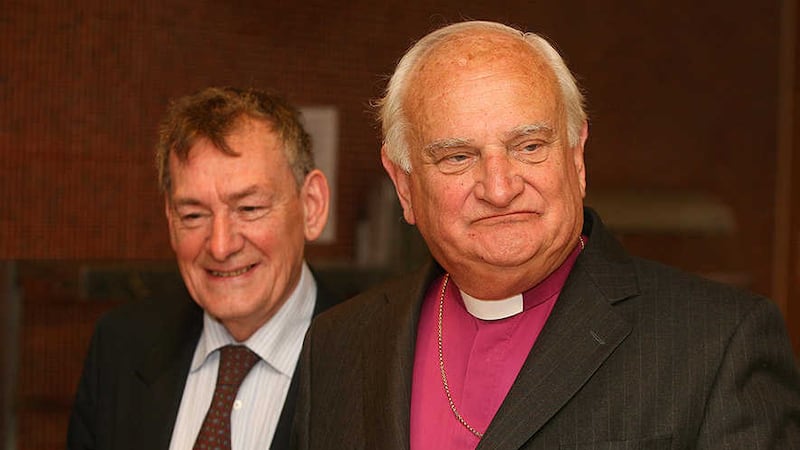Justice is a much overused word in Northern Ireland. Judicial justice, social justice, natural justice, summary justice.
None of the above is delivering the full answer to resolving years of violence, murder and sectarian division.
The never ending political crisis at Stormont has delayed the implementation of proper mechanisms to deal with the past leaving loved ones in a painful limbo, with hope continually dashed as promise after promise fails to materialise.
The only real body set up to try and deal with the issue of unsolved crimes, the Historical Enquiries Team, is now a footnote in the long tragic tale of Northern Ireland.
This cold case team set up by former chief constable Hugh Orde promised so much, raising victims hopes, but in the end was dogged by questions over independence, restrained by bureaucracy and served, in many cases, to re-traumatise those families who were denied justice not once but twice.
Under the Stormont House proposals a series of new mechanisms have been put forward to give both comfort and closure, while at the same time being careful not to forget what happened.
Only the new proposals aren't that new, but in fact repackaged Eames/Bradley, a report that's been gathering dust since its release in 2009.
While the suggestion of a £12,000 pay out to bereaved family members overshadowed the proposals, the core spirit of the report was one of truth recovery, understanding and recognition of hurt.
I've interviewed what must now be hundreds of victims over the years from all walks of life, people bereaved as a result of loyalist, republican and state violence. Some have suffered at the hands of several paramilitary groups, some have lost more than one family member. Some received judicial justice in the form of a court case and a conviction although the pain of losing a loved one doesn't just disappear with a guilty verdict.
Most, however, have never had their day in court and as time passes, memories fade and participants die off it is unlikely they ever will.
The announcement this week that seven people arrested over the murder of Jean McConville, including Sinn Fein leader Gerry Adams, will not face prosecution is an example of the difficulty in meeting the needs of victims in the absence of a proper agreed mechanism.
The McConville children have suffered horrendously, left orphans in a hostile environment, losing not just their mother but any semblance of a normal family life when she was abducted one cold December day in 1972.
Their plight and that of thousands of other children such as those of Dorothy Trainor, the mother of 11 murdered by the UVF in 1975, are victims who deserve better. Mrs Trainor's husband was wounded in the attack, two of her children were also later murdered. The older children were left to care for the younger ones but when I visited their home earlier this year they told me I was the first journalist to ever call with them to hear their story. No politician, police officer or clergy member had taken up their plight. The intervention of Ann Cadwallader of the Pat Finucane Centre was the first time anyone had taken an interest in their case.
Despite this I found no bitterness, no demands for retribution or revenge, a family who could have been torn apart was instead united in their remembrance of a much loved mother.
And in those two examples we see how there is no one size fits all mechanism to deal with the past.
No two families are the same, some seek justice in the traditional sense, others simply want truth and recognition of hurt.
Convictions are practically impossible to secure without a high standard of evidence, proof beyond reasonable doubt. If they fail those lengthy court cases only serve to cause further hurt, resentment and reopen old wounds.
The handful of historical convictions that have been achieved have been politicised with allegations of political policing or targeting one section of the community.
Navigating through the justice system is never simple, but in the victims' sector with multiple faceted issues it's all but impossible to find a solution that fits all.
There simply isn't one, there's no way of ensuring that every person gets what they want. That doesn't mean we should declare defeat and ensure no one does.
It's time to get Eames/Bradley out of cold storage, iron out the few remaining points and help those who are suffering in silence.
The present method of giving precedence to those who shout the loudest is deeply unfair and does an injustice to the memories of those who died and insults and hurts those left behind.








